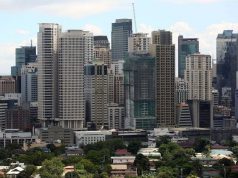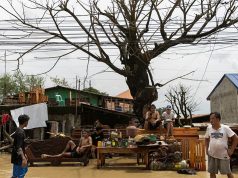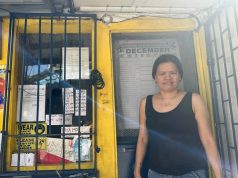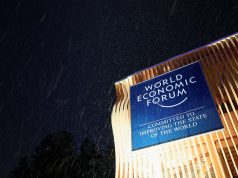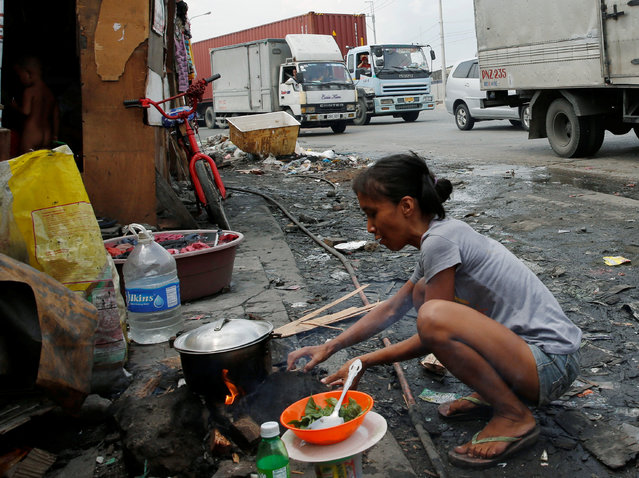
Department of Budget and Management chief Benjamin Diokno drew flak for saying that overseas Filipino workers could manage to get by in the Philippines if they just work hard enough.
In a recent press conference, Diokno addressed concerns that the recent tension with Kuwait could endanger the livelihoods of hundreds of thousands of OFWs.
“Sa tingin ko kung masipag ka lang, hindi ka magugutom sa Pilipinas,” Diokno was quoted as saying when asked about how the around 250,000 OFWs from Kuwait would be given jobs following the deployment ban there.
Critics scored Diokno, claiming that he was out of touch with the reality of Filipino labor
These people who say that if you work hard, you can easily rise from poverty havent walked in the shoes of a farmer, a street vendor or a miner. Wake up at 4 AM, work all day, sometimes 7 days a week to barely make ends meet with no yaya to clean your house. Ahem, Sec. Diokno,
— Kip Oebanda (@kipoebanda) May 2, 2018
Pro-Poor: Does Secretary Diokno know how hard farmers and agricultural workers labor in the fields? Does he know how much big hacenderos pay the sakada? Does he know how much workers spend to get from relocation sides to their work places in Manila?
— inday espina varona (@indayevarona) May 3, 2018
One user cited a 2016 World Bank report on the Philippines which discusses the factors behind the prevalence of hunger amid economic growth.
An excerpt from the World Bank report. See, mahirap ang ibang Pinoy hindi dahil sa tatamad/tamad sila at nagkukuyakoy lang sa bahay, kungdi dahil kakarampot ang kinikita nila. pic.twitter.com/UVyNCIXF2z
— Cole Sprouts ?️? (@rupertnotholmes) May 2, 2018
The study also points how the number of unskilled laborers in the Philippines is due to the high cost of education in the country.
Jan Rutkowski, the author of the study, postulated that it was low earning capacity and not joblessness that was the primary cause of poverty in the country.
“If a household moves from the first to the second earning capacity group, the risk of poverty drops by 18 percentage points. However, the increase in earning capacity needs to be considerable to have noticeable reduction in the risk of poverty,” Rutkowski said.
“To move from the first to the second earning capacity group, the employed household members would need to double their earnings,” he writes in his analysis of the data gathered.
A copy of the study can be viewed here.
Interaksyon recently reported on the arguments against putting the blame on Filipinos for their own poverty.
The World Bank on the Philippines
Despite the prevalence of poverty, the World Bank’s overview of the Philippines as of 2017 regards it as the fastest growing economy in Asia.
According to the World Bank, the poverty incidence in the Philippine dropped from 25.2 percent in 2012 to 21.6 percent in 2015.
The World Bank currently funds the Philippine Rural Development Project, a tie-up with the Department of Agriculture which looks to improve infrastructure in the agrarian and fisheries sector.
Its partnership projects with the Philippines has funded numerous other government projects, as well as having uplifted the livelihood of the constituents involve in their projects.
Criticisms of the World Bank
The World Bank is not without its share of detractors. Just recently, its own chief economist Paul Romer attacked the World Bank’s recent credit reports in its Doing Business publication.
Romer criticized the shift in methodology every year and decried the practice of assigning high ratings to countries where business was deregulated.
Outgoing Chilean president Michelle Bachelet has slammed the World Bank’s alleged bias against left-leaning governments like hers following Romer’s statements.
According to Bachelet, the World Bank ascribed poor business ratings to Chile even though business conditions in the South American country did not worsen.
Some have also brought up the argument that the World Bank’s projects have led to human rights violations. German media company DW reported on a study that supposedly documented how World Bank resettlement practices in third world countries failed to protect the rights of those who were displaced.
The study helmed by investigative journalists supposedly found that World Bank projects evicted people “without warning or compensation” in Nigeria and in other developing countries.




